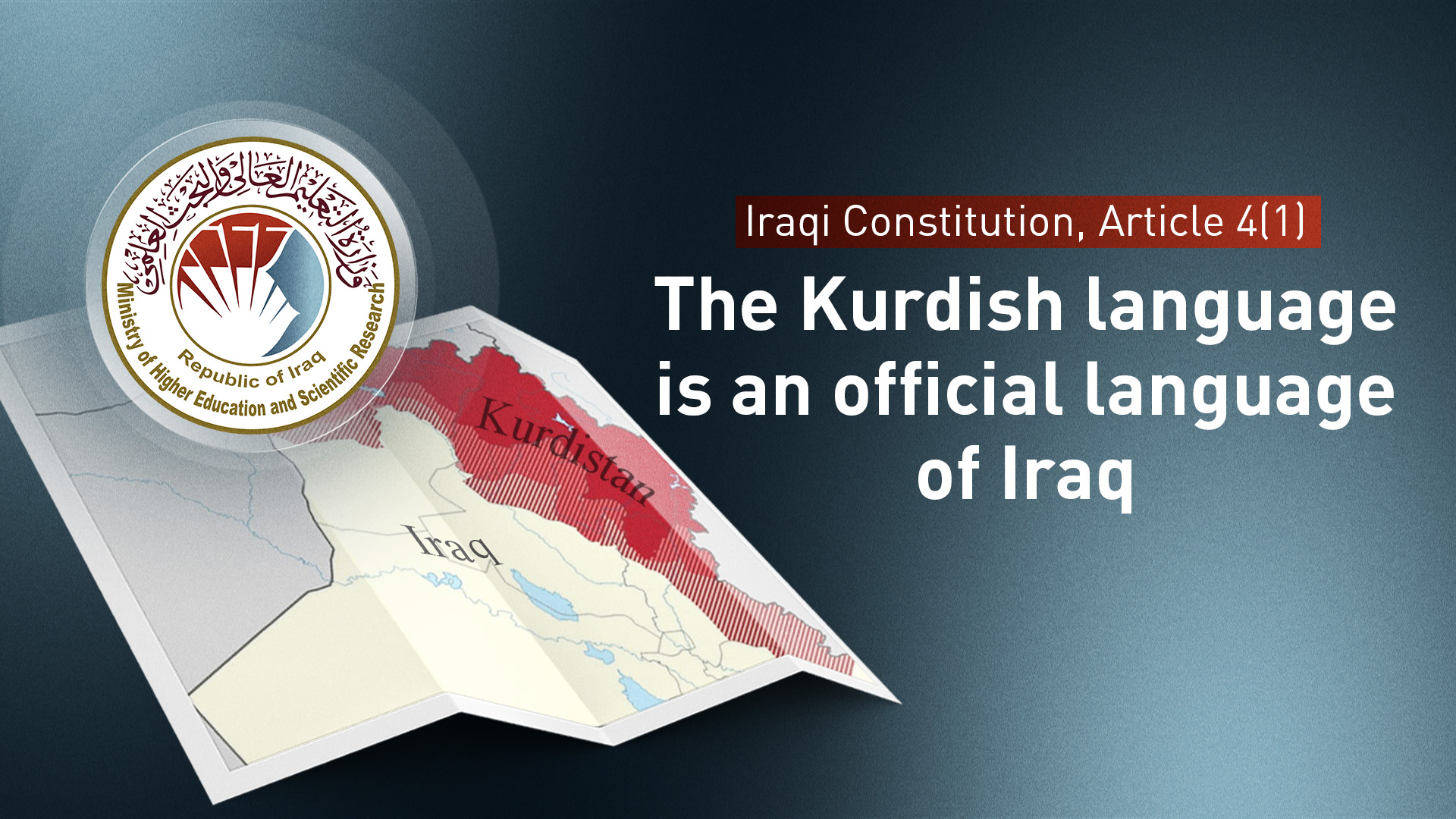Iraq Bars Kurdish Language in University Exams in Kirkuk, Mosul, and Diyala
Iraq's Ministry of Higher Education has banned Kurdish students in Kirkuk, Mosul, and Diyala from taking exams in Kurdish, reversing a 2010 rule and threatening penalties. The move is criticized as a violation of the Iraqi constitution, which recognizes Kurdish as an official language.

ERBIL (Kurdistan24) — In a move that directly challenges the constitutional status of the Kurdish language in Iraq, the Ministry of Higher Education in Baghdad has officially revoked a policy that permitted Kurdish-speaking students at key universities in Kurdistani territories outside the KRG's administrative control to answer exam questions in their native tongue. The decision, which threatens non-compliant universities with legal action, effectively creates a significant new barrier for Kurdish students and has been described as a direct contradiction of the Iraqi constitution.
According to an official letter issued by the ministry on the 16th of this month, the universities of Kirkuk, Mosul, and Diyala have been formally notified of the policy reversal. The directive explicitly cancels a provision first established by the Ministry of Higher Education in 2010, which had allowed Kurdish students to take their exams in the Kurdish language, with the answers to be subsequently translated for grading.
The new letter from the ministry leaves no room for ambiguity, reiterating that the previous decision is now void. It escalates the matter by issuing a stern warning, stating that any university failing to comply with the new mandate will be penalized and face legal action from the federal government.
This policy change has ignited serious concerns, as it appears to stand in direct opposition to the foundational legal framework of the modern Iraqi state. The text of the communication highlights a critical point of contention: "This comes despite the fact that the Kurdish language is established as an official language in the Iraqi constitution, and on that basis, its use in state institutions is required. Therefore, the decision by the Iraqi Ministry of Higher Education is contrary to the constitution."
By rescinding this long-standing academic accommodation, the ministry’s decree not only impacts the immediate educational future of countless students but also raises fundamental questions about the federal government's commitment to the linguistic and cultural rights guaranteed to all its citizens.
Constitutional Rights and Kurdistani Territories
The decision from the Ministry of Higher Education carries significant weight due to the legal, political, and demographic context of both the Kurdish language in Iraq and the specific locations of the universities involved.
The Constitution of Iraq, ratified in 2005, is unequivocal about the status of the Kurdish language. Article 4, Section 1 states: "The Arabic language and the Kurdish language are the two official languages of Iraq." The constitution goes on to guarantee the right of Iraqis to educate their children in their mother tongue, particularly in government educational institutions, and specifies that the Kurdish language shall be used in official institutions within the Kurdistan Region and in federal institutions. The ministry’s new directive is widely seen as a violation of the spirit and letter of this article, which was a cornerstone of the post-2003 political agreement designed to create a pluralistic, federal, and democratic Iraq.
The policy that was just reversed dates back to 2010. At that time, the Kurdistan Region had already enjoyed over a decade of de facto autonomy, operating its own government and educational system primarily in the Kurdish language. The 2010 decision was a pragmatic recognition of this reality, providing a necessary bridge for students from the Kurdish education system who were pursuing higher education in federal universities. The reversal of this policy is therefore seen by many not just as a new restriction, but as a regression from a practical accommodation that existed even before the current constitution was enacted.
Targeting Kurdistani Territories
It is no coincidence that the directive specifically targets the universities of Kirkuk, Mosul (in Nineveh province), and Diyala. These provinces are all part of what are known as the "Kurdistani territories" under Article 140 of the constitution. These are areas with mixed populations of Kurds, Arabs, Turkmen, and other minorities, whose final administrative status has yet to be resolved through a long-stalled process of normalization and referendum.
For decades, these areas have been at the center of political and ethnic tensions. The universities in these cities serve large numbers of Kurdish students who have often completed their primary and secondary education in Kurdish-language schools. Forcing them to sit for complex, specialized university examinations in Arabic—a language they may not have academic proficiency in—places them at a severe disadvantage and could effectively bar them from academic success and professional advancement through the federal education system. Critics argue the move could be interpreted as a political tool to marginalize the Kurdish presence and cultural identity in these contested and strategically vital areas.
Kurdistan24's correspondent Hemn Delo contributed to this report.
